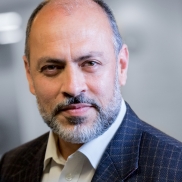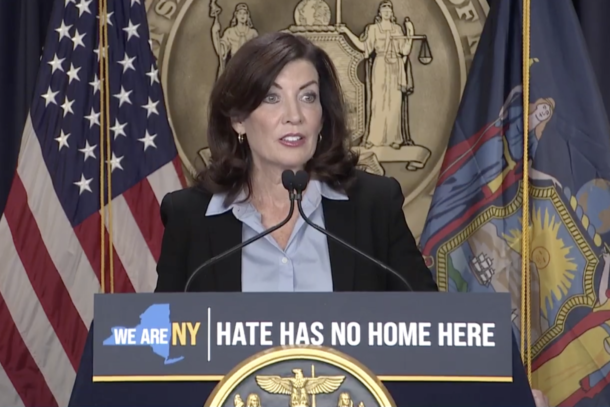Every one of us has a role to play, but many people don’t know how to intervene effectively. Here are some tips:
Statistics Canada recently reported a 72-per-cent increase in hate crimes over the past two years. Hate threatens the health and wellbeing of everyone in our community — not only those who are directly affected.
Online spaces and pandemic social isolation helped hate movements that target racial minorities, religious groups, the 2SLGBTQ+ community and others make their way into political platforms, mainstream media and interpersonal interactions. Online hate reproduces quickly, lasts for a long time, and is difficult for law enforcement to engage with due to a lack of regulations.
Online hate has the potential to inspire violent acts, such as the Islamophobic attack on a Muslim family in London, Ont. or the misogynist terrorist attack with a van in Toronto — incidents that sow division, prevent people from reaching their full potential and shatter community safety.
Every one of us has a role to play in confronting online hate, but many people don’t know how to intervene effectively. Here are four things each of us can do to prevent the people in our lives from getting sucked into dangerous online communities:
• Encourage digital literacy to empower people to identify misinformation, echo chambers and algorithms that distort their ability to engage constructively online.
We must ask questions like: who posted this information, and why? What is the source of their information? What points of view or facts are missing? What approaches did they use to catch my attention?
MediaSmarts has tools for educators, like My Voice Is Louder Than Hate, that empower young people to identify what hate looks like and push back against it online.
• Support a community-wide counter narrative to hate. When hate happens, we must denounce it. Pushing back on hate prevents it from creeping into the mainstream and strengthens community cohesion.
Steadfast resistance to hate is also critical for offering solidarity to those affected by it. United for All is an example of a coalition that rallies more than 150 local organizations to stand up against hate-based violence, racism and extremism.
Strengthening our social safety net with better support systems for victims of hate, and with initiatives that combat extremism — such as the Exit-Deutschland program in Germany and Prevent in the United Kingdom — is critical to addressing hate.
Hate speech, hate crimes and extremism are defined differently between communities, making it hard to approach the issue consistently. We need common policies and regulations, unencumbered by political ideologies, to identify and address the threat of online hate.
Trust in public institutions is at an all-time low, and continued distrust in government and law enforcement strengthens extremist movements by empowering them to mobilize people who are disillusioned by systems of power. It is critical for public institutions to regain trust with communities to prevent further harm.
All of this requires collaboration and commitment from governments, institutions and the community. The social fabric of our communities depends on it.
Each one of us has a role to play in standing up against hate. We can’t afford to wait for governments to intervene when our communities hold so much power to build resilience and find common ground. Let’s keep each other safe.
Abid Jan is the Director of Capacity Building for United Way East Ontario. United Way is leading United for All, a coalition of partners committed to overcoming hate-based violence, racism and extremism.




Comments
drover sointeru
Hi would you mind sharing which blog platform you’re using? I’m going to start my own blog soon but I’m having a hard time selecting between BlogEngine/Wordpress/B2evolution and Drupal. The reason I ask is because your design and style seems different then most blogs and I’m looking for something completely unique. P.S Apologies for getting off-topic but I had to ask!